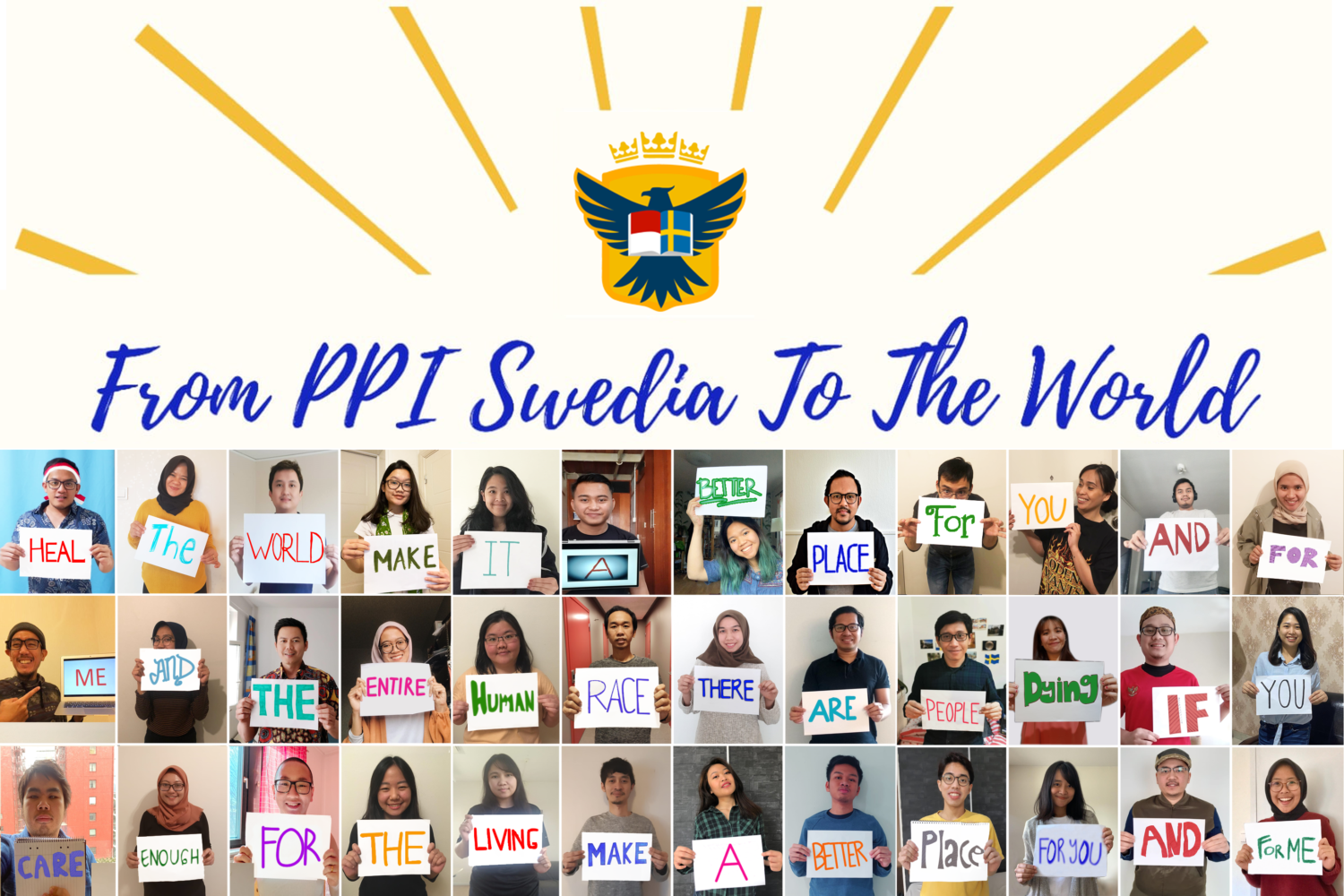Although Scandinavian countries, including Sweden, are well-known for their work-life balance, it does not necessarily mean that we will not encounter a situation when an abundance of assignments overwhelms us. Especially in the exam week, all final papers and other assessments can meet at once. This situation most likely makes students feel overwhelmed, at least me personally. As an engineering student, having deadlines every week is expectable, despite being in Sweden. It felt worse when I experienced such a condition in Ramadan while managing my focus (and sleep). The number of assignments, of course, was not reduced, not to mention other responsibilities from my student organization. At that time, I had to devise some strategies to survive. Fortunately, I could develop some tactics that I will share in the following paragraphs. Feel free to adjust it to suit your preference.
- You cannot solve the problem you cannot see
I learned this principle thanks to my supervisor in my previous workplace. As a consultant, he taught me to visualize everything in my mind to attain a more vivid picture of what we are facing at the moment. Well, it is relatable to me as an alumna of the Industrial Engineering program. We are always encouraged to model some information we obtained into a process chart or some descriptive statistic tools to get more understanding of the current problem.
Does it have something to do with our assignments?
Yeah, of course! Well, I tried to write down all assignments and responsibilities on sticky notes, along with their deadlines. One sticky note for one assignment (not sustainable, I know. Sometimes I replaced it with unused papers). I spared a special time to list all homework, exams, and organization tasks and stick those onto my room’s wall. I did not push myself to gather all at one time. Whenever I got a new task, I just put that to a piece of dedicated sticky notes.
Why did I not just write that on my laptop or phone? Well, I tried my best not to depend on electronic devices heavily. I would not spend my whole time staring at my screen. Under the very packed schedule, I set my mind to stare at monitors only if I wanted to do my tasks. Whenever I stared away from the screen, the vibe shifted to “pause mode,” so I felt less stress when I looked at my task lists. Again, it is my personal experience. In addition, by placing it on my room’s wall, whenever I felt procrastinating the tasks and just lay on my bed, my eyes would focus on the sticky notes as a reminder.
- Pomodoro.
Pomodoro is simply a tool proposed by Francesco Cirillo to schedule our work. (MetodBanken, 2018) It is performed by dividing our work into some 25-minutes intervals, between which a 5-minute break occurs. No matter what happens, in 25 minutes, we may not take away our focus on the work we are doing at that time. I found it useful as I am a deadline-oriented person. I consider this 25-minutes interval a small deadline at which a small part of my assignment should be finished.
Personally, I set the Pomodoro with a ratio of 20:5. I would dedicate 100% of my 20 minutes only for the tasks and reward myself 5 minutes to break. This 20-minutes interval refers to the allowed time for eyes to stare at the monitor continuously (VisionICL, 2021). I start the timer by tossing my phone away from my desk onto my bed. Literally. Doing this gives my mind and body a signal to start (yeah, this action is actually not recommended. You can come up with another better sign).
- You may need help
Feeling overwhelmed could probably stem from other factors that we could not handle by ourselves. I personally found that the procrastination I experienced was also affected by many factors. One aspect is fasting when the daylight is very long. Eating nothing for about 20 hours, plus the change of sleeping and eating patterns, made me lack sleep. I also consumed improper food as there was no sufficient time to cook more healthy food at that moment. The outbreak of Covid-19 in Lund also forced me to stay in the room without adequate face-to-face interaction, even with my corridor mates.
If that is the case, it is better to ask for help. Do not hesitate to explain the situation to our friends in the group assignment, for instance. In the beginning, I had explained to my group mates that I would probably need an extra break sometimes and needed a backup. By letting them know our condition, they could think of ideas to adjust the working style and schedule.
We can also ask for a deadline extension for our lecturer, especially in the autumn or winter. I knew one of my Indonesian seniors and my classmate that got this sort of dispensation. However, it does not apply to all courses and lecturers. It is better to communicate the situation clearly and ask for suggestions from our lecturer.
Last but not least, it is also recommendable to consult with a psychologist. Most (if not all) universities provide a student service where students can consult their mental health to a psychologist, including procrastination and feeling overwhelmed. There is also another support from communities and even student housing, indicating how important mental health is.
That is everything I could share based on what I have done during my packed schedule. Again, it is not absolute to apply this precisely as written. Hopefully, it can help!
Ahmad Avisiena Gaza
Master’s Candidate Logistics & Supply Chain Management
Lund University

